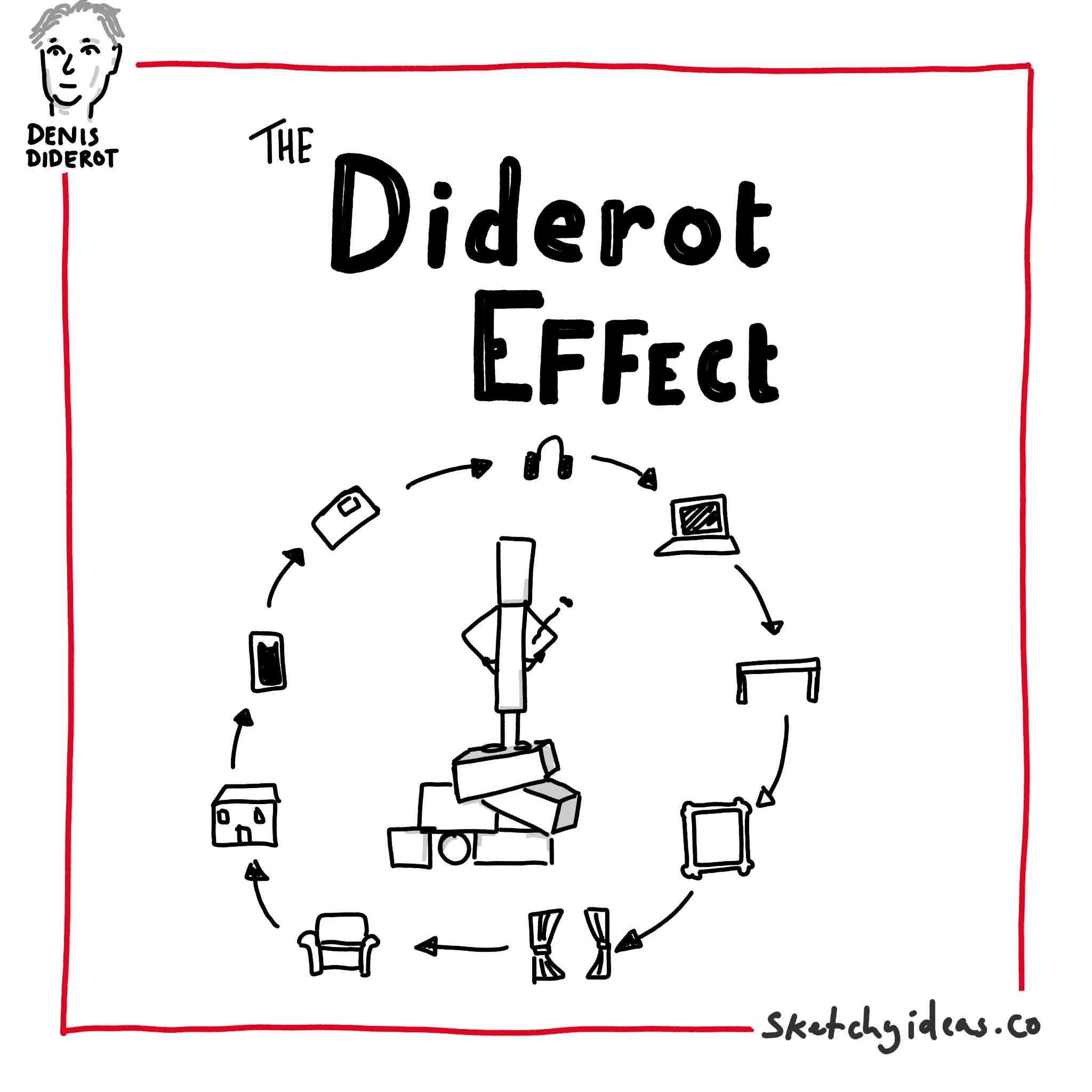Think back to your last smartphone purchase.
You’ve picked the right phone. Found a place selling it and got the cash you need (either upfront or via instalments). It fits your budget and you’re excited to get your hands on a better camera and new upgrades.
But as the month goes on, you notice your bank balance is far lower than you expected.
How come?
You’ve fallen victim to The Diderot Effect.

What Is the Diderot Effect?
The Diderot Effect is a psychological phenomenon where a new possession causes us to desire (and usually buy) more.
Instead of satisfying our desires, it increases or redirects them. This can be additional items for the first item (such as phone accessories or car upgrades) or it can be other items to replace now insufficient items (such as additional wardrobe items or furniture).
Its name comes from an event back in the 18th century.
The surprising story behind the Diderot Effect
The 18th-century French Philosopher, Denis Diderot lived a humble existence.
One of his patrons wanted to thank him and so gifted him a fine dressing gown. At first, Denis was grateful and welcomed his new gown, but things soon changed. He started to notice that his existing possessions seemed inadequate compared to his gift.
He was soon plunged into debt replacing his chair, desk and prints to match the quality of his new gown.
He wrote about it in his essay “Regrets on Parting with My Old Dressing Gown.”
Why Does It Matter?
The same desires that affected Diderot can consume us too.
Although people nowadays have far more money to spend on non-essential items, the levels of debt are skyrocketing faster. By understanding the effect, we can seek to mitigate its influence on our lives avoiding
- Needless consumerism — buying additional items in the hope they will satisfy us instead of activities that actually do satisfy.
- Financial burdens — burdening ourselves with excessive purchases.
- Environmental harm — overconsumption increases waste and drains valuable resources.
How to Avoid the Diderot Effect
Although the Diderot effect can affect us all, there are some simple actions we can take to help avoid its influence on us.
Mindful consumption
Many of us make purchases without thinking them through.
Mindful consumption is the alternative. When we practice mindful consumption, we carefully consider new purchases and whether they will truly add value to our lives. We might also consider the long-term impact of the purchase on your finances and the environment.
One example is in The Life We’re Looking For, where author Andy Crouch encourages us to consider what we will lose or not be able to do due to each purchase. For example, a Netflix subscription makes it harder to find time to read.
Set boundaries
Overconsumption works like a chain reaction.
One purchase begets another.
The cure is to set boundaries on your purchases. For example, you could have a rule of “one-in, one-out” so it’s harder to justify a random purchase. This can slow down and stop the chain reaction.
Focus on your values
You probably don’t believe purchases are the most important things in life.
But you may accidentally act that way.
Focusing on what you actually value and your goals will help you avoid purchases and make more meaningful ones. Invest in experiences, learning, and relationships rather than acquiring more stuff.
Conclusion:
The Diderot Effect reminds us of the power of consumerism and the impact it can have on our lives.
By understanding this phenomenon, we can take steps to avoid its negative effects, such as mindless consumption and financial strain. Instead, we can choose to live more intentionally, focusing on what truly matters in our lives—experiences, relationships, and personal growth, rather than the relentless pursuit of material possessions.

Leave a Reply